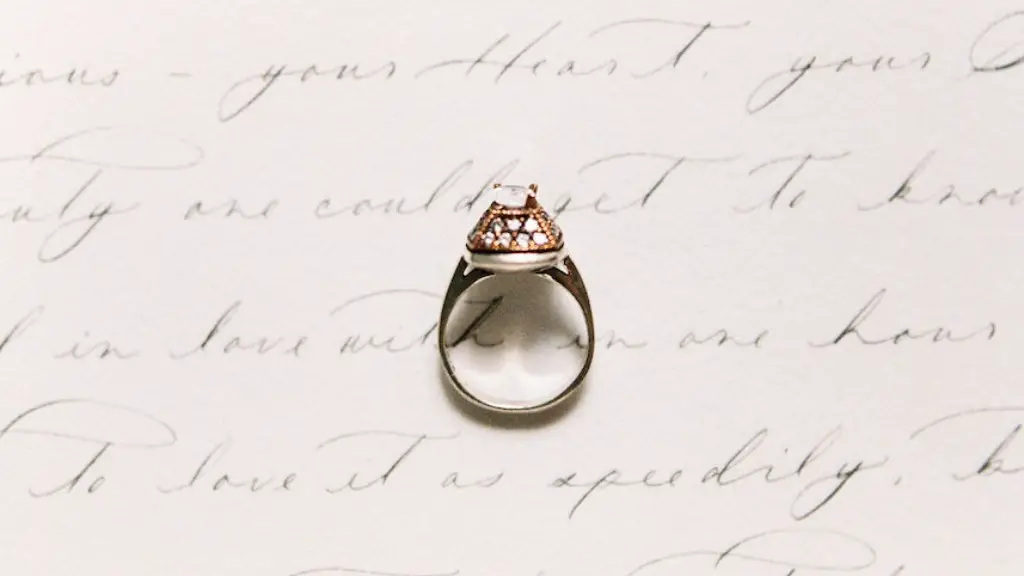Definition of Poetry
Poetry is a type of literary work that creatively expresses ideas, emotions, and experiences. It often has a rhythm, rhyme, and figurative language. It comes in many forms, including haiku, sonnets, ballads, and narrative poems. Poetry can explore a wide range of topics from love, nature, and family to popular culture, politics, and mythology. There are also various poetic forms, including free verse, spoken-word, and lyric poetry.
History of Poetry
Poetry has existed since ancient times. Some theorists believe that it is the oldest form of human expression. The earliest known poetry dates back as far as 3,000 BC in ancient Mesopotamia. Many of these early poems were incorporated into religious texts and songs. For example, the Bible and the Epic of Gilgamesh contain some of the oldest examples of poetry. In the Renaissance, European poetry began to take on the themes and stylizations of the classical schools. By the 18th and 19th centuries, poetry had begun to form its own distinct forms—such as epics, sonnets, and odes—by fusing together classical and traditional forms. Since then, poetry has evolved and expanded to include all manner of styles, forms, and themes.
Forms of poetry
Modern poetry comes in a variety of forms. Free verse is a popular form of modern poetry that is unstructured and does not use a strict meter or rhyme scheme. It is often used to explore more serious themes, such as loss, emotions, and the human condition. Sonnets, on the other hand, are more traditional forms of poetry. They have a set rhyme scheme and meter and are often used to tell stories or express love. Haiku is another type of poetry, typically consisting of three lines of five, seven, and five syllables, respectively. Spoken word is a form of performance poetry that is often combined with music and other visual elements. Lyric poetry is primarily focused on emotions and feelings, often expressed through musical structures.
Importance of Poetry
Poetry plays an important role in our lives. It allows us to express ourselves in ways that we might not be able to with words alone. It can help us make sense of the world and its complexities. Poetry can also provide us with solace and comfort in difficult times, as well as giving us a way to connect with others through our shared experiences and emotions. Furthermore, poetry can be used as a tool to educate, inform, and shape public discourse.
Benefits of Poetry
Poetry can also provide a number of psychological benefits. It can help us cope with difficult feelings and uncomfortable emotions by providing a creative outlet through which these can be expressed. Poetry can also be therapeutic, providing an opportunity to gain insight into our own inner worlds and our relationships with others. Furthermore, writing poetry can help to develop problem-solving skills, creativity, and the ability to express ourselves effectively.
Tradition of Poetry
The tradition of poetry has been passed down from generation to generation. Poets often use their work to explore a variety of topics, from life and love to loss and death. In many cultures, poetry is an important part of oral traditions, where stories and poems are passed down through the generations via song and storytelling. Poetry is also a way for people to connect with their heritage and explore the past, as many traditional poems are passed down through the oral tradition.
The Future of Poetry
With the advent of modern technology, poetry is becoming even more accessible. Online platforms such as Instagram and YouTube have helped to increase the visibility of contemporary poets and have brought new audiences to the medium. There has also been an increase in the number of ‘poetry slams’, where spoken word poets are given the opportunity to share their work in live performance. With this in mind, it is likely that the popularity of poetry will continue to grow in the 21st century.
Accessibility of Poetry
Poetry is becoming increasingly accessible, as many people are now able to write and publish their work online. Social media platforms such as Instagram and Twitter can be used to share poems and discuss them with others. There are also many online journals and magazines dedicated to publishing poetry. Additionally, there are a number of websites, such as Poetry.com, that offer opportunities to submit poetry for publication. As a result of this increased accessibility, poetry is becoming increasingly popular and more widely appreciated.
Impact of Poetry
Poetry has the power to shape public discourse and influence social change. Poetic works have often been used to highlight injustices and amplify the voices of minorities and marginalized groups. For example, civil rights poetry was instrumental in raising awareness of the struggles of African Americans in the 20th century. In addition, poetry can also be used to express joy and celebrate life, creating a platform to communicate love, hope and resilience in the face of adversity.
Representation of Poetry
Today, there is an increased demand for diversity both in terms of representation in poetry and in the language used to describe it. In recent years, there has been an effort to promote gender equality in the world of poetry, particularly among female authors who are often underrepresented in the industry. There is also an increased focus on ‘foundational’ languages such as Spanish and Indigenous languages, which were often excluded from the written canon in the past.
Dialogue of Poetry
The dialogue surrounding poetry has also evolved in recent years. Social media has been largely responsible for this shift, with poets engaging in conversations on topics ranging from race and gender to mental health and relationships. Such discussions often take place in online poetry communities, where poets can share their work and reflect on their craft while engaging with like-minded individuals. This increased dialogue has allowed poets to engage with wider cultural debates and contribute to the evolution of the form.
Innovations of Poetry
Innovations are also being made within the field of poetry itself. Many modern poets have begun to experiment with form and content, often embracing multimedia formats and innovative approaches to storytelling. Performance poetry, for example, has become increasingly popular, often being combined with music and visual elements. Additionally, many poets are now using technology to create interactive experiences, from virtual reality poem ‘landscapes’ to augmented reality poetry installations.
Technology in Poetry
The emergence of new technologies has also had an impact on how poetry is disseminated. Social media platforms such as Twitter and Instagram are now being used to promote poetry and share works more widely. Similarly, poetry readings and workshops are often held online in order to reach a wider audience and reduce barriers to participation. In addition, online journals and magazines are providing opportunities for amateur and emerging poets to publish their work.
Analysis of Poetry
The contributions of contemporary thinkers and critics have also had an influence on understanding and analysing poetry. Many scholars have begun to examine the shifting cultural context in which poetic works are written and interpreted, exploring questions around the role of technology, representation and meaning. Additionally, literary critics are exploring the ways in which poetry speaks to particular audiences and how it can be used to evoke emotion and understanding.



